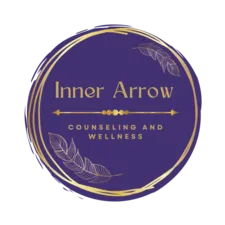Wherever you are in your journey, we are LGBTQ+ identifying and affirming advocates committed to supporting you and your family holistically in our therapeutic practice.
In addition to potentially facing challenges in sexual and gender identity development, minority stress, bullying, and safety concerns, LGBTQ individuals deserve a safe and supportive environment to explore mental health, relational, academic, and career concerns with a counselor that understands and validates their experiences and empowers them to be their genuine, authentic selves.
For Lesbian, Gay, Bisexual, Transgender, and Queer (LGBTQ+) individuals, the realization and experimentation of their sexual orientations and identities can be a very difficult time due to social norms and negative stigmas in society and the media (Cohler & Hammack, 2007; Zubernis & Snyder, 2007). LGBTQ+ students are less likely to come to terms with deep-rooted homophobia, come out to themselves and others, and involve themselves socially in LGBTQ+ activities due to fear of rejection (Rosario, Schrimshaw, Hunter, & Levy-Warren, 2009). LGBTQ+ youth also struggle with isolation, rejection, depression, shame, and/or low self-esteem (Datti, 2009).
With a United States population of 40 million young adults ages ten to nineteen and the approximation that 10% of the American population identifies as gay, lesbian, bisexual, transgender, or queer, one can estimate that about four million young people identify as LGBTQ+ (Datti, 2009, Powell, 2021). Approximately 1.6% of the American adults identify as transgender or nonbinary, and this rate is much higher, 5.1%, in young adults under the age of 30 (Brown, 2022). The LGBTQ+ population seeks counseling services at a rate two to four times greater than heterosexual individuals, showing how important it is that counselors are both prepared to work with this community, and that a variety of inclusive counseling services are available to them (Singh and Shelton, 2011).

Sources:
Brown, A. (2022, June 7). About 5% of young adults in the U.S. say their gender is different from their sex assigned at birth. Pew Research Center. (https://www.pewresearch.org/fact-tank/2022/06/07/about-5-of-young-adults-in-the-u-s-say-their-gender-is-different-from-their-sex-assigned-at-birth/
Cohler, B. J. & Hammack, P. L. (2007). The psychological world of the gay teenager: Social change, narrative, and “normality”. Journal of Youth & Adolescence, 36, 47-59.
Datti, P. A. (2009). Applying Social Learning Theory of Career Decision Making to Gay, Lesbian, Bisexual, Transgender, and Questioning Young Adults. Career Development Quarterly, 58(1), 54-64.
Powell, L. (2021, December 9). We Are Here: LGBTQ+ Adult Population in United States Reaches At Least 20 Million, According to Human Rights Campaign Foundation Report. Human Rights Campaign. https://www.hrc.org/press-releases/we-are-here-lgbtq-adult-population-in-united-states-reaches-at-least-20-million-according-to-human-rights-campaign-foundation-report
Rosario, M., Schrimshaw, E. W., & Hunter, J. (2008). Predicting different patterns of sexual identity development over time among lesbian, gay, and bisexual youths: A cluster analytic approach. American Journal of Community Psychology, 42(3/4), 266-282. doi:10.1007/s10464-008-9207-7
Singh, A. & Shelton, K. (2011). A content analysis of LGBTQ qualitative research in counseling: A ten-year review. Journal of Counseling and Development: JCD, 89(2), 217-226.
Zubernis, L., & Snyder, M. (2007). Considerations of additional stressors and developmental issues for gay, lesbian, bisexual, and transgender college students. Journal of College Student Psychotherapy, 22(1), 75-79. doi:10.1300/J035v22n01_06
